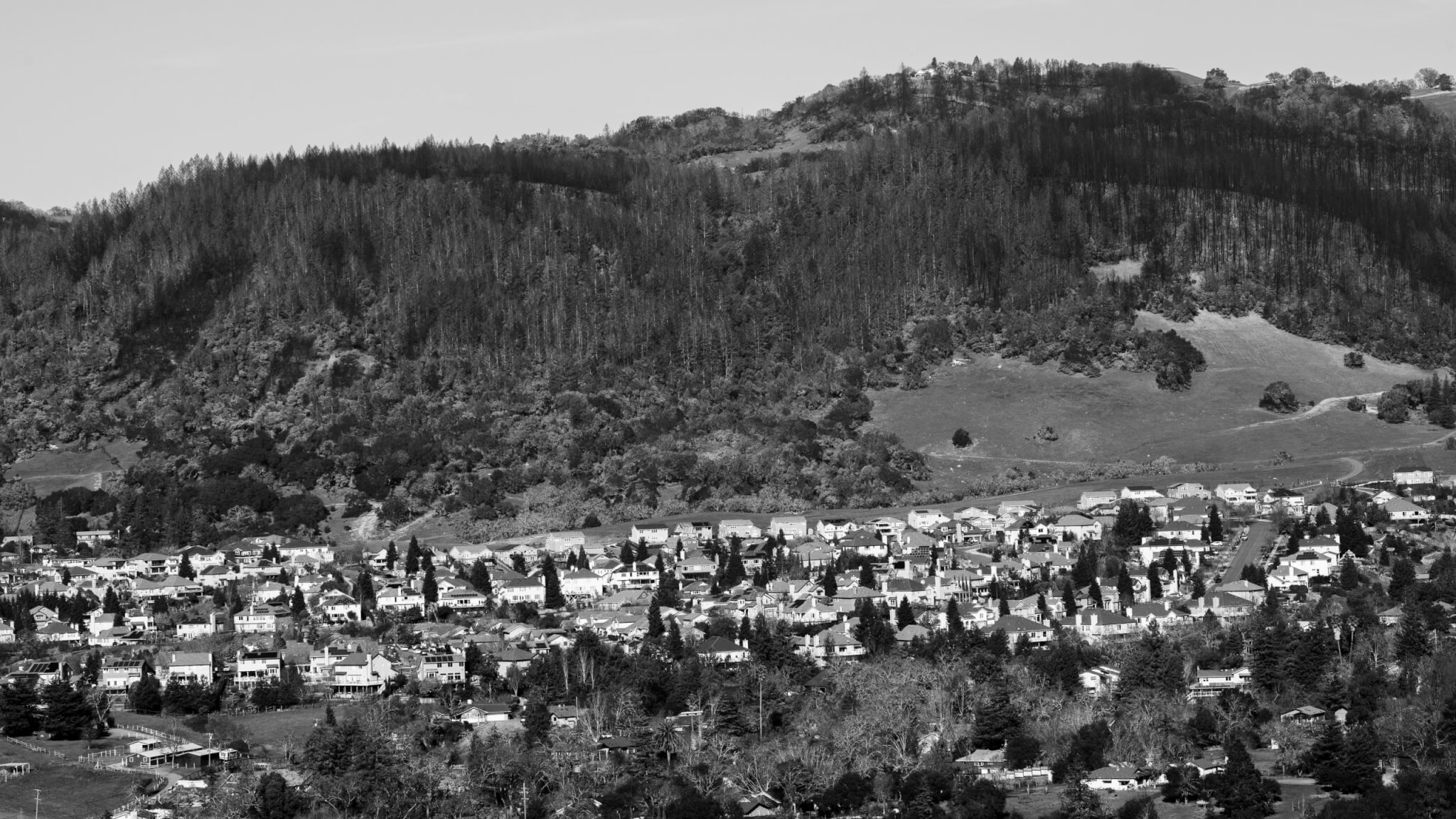The End of Rain
photos by Scott Ordway
The End of Rain
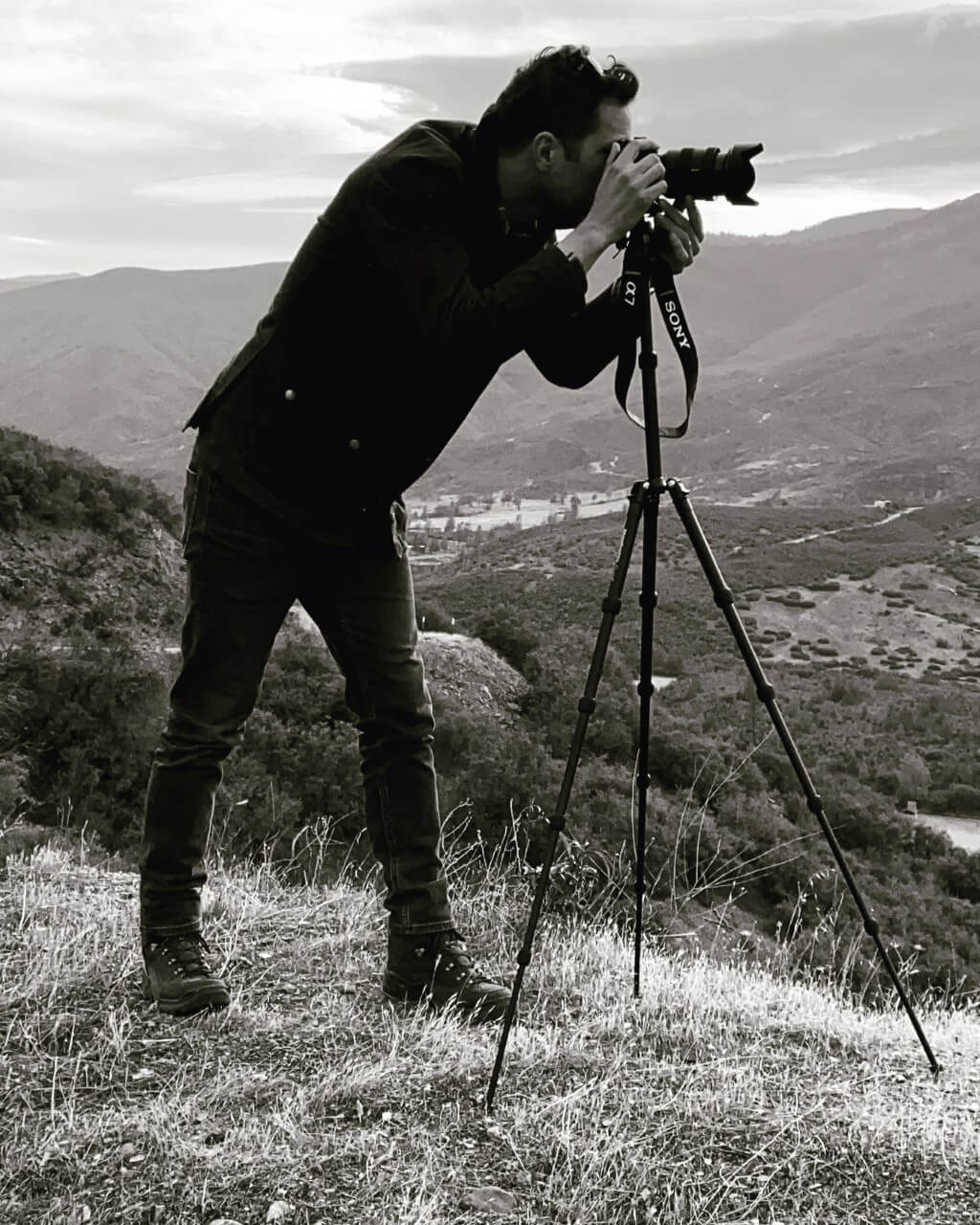
Our relationship with nature is a prominent and recurring theme in composer and multimedia artist Scott Ordway's work. Could a pivotal occurrence like the CZU fire—catastrophic fire tearing through a fire resistant coast redwood temperate rainforest— change our view of the land? Ordway crowdsourced input from more than 200 Californians who shared their first-hand experience of wildfire and drought over the past several years. He collected and analyzed the 80,000 words they shared, and extracted a large poetic text which forms the the lyrics for his symphonic composition, the vocals of which will be performed by the Grammy winning ensemble, Roomful of Teeth, and accompanied by projected landscape photography and video that he created while traveling throughout his home state and collecting the texts. The result is the symphonic work “The End of Rain” which premiered at America's oldest festival of new orchestral works, the Cabrillo Festival of Contemporary Music, on July 29th 2022.
In anticipation of the premiere of “The End of Rain”, Ordway curated an experience of his photography and music to share with you his evolving relationship with land through his experience with the Santa Cruz mountains and his hopes for how art can help nudge us from loving nature to taking action to protect it.
Experiencing The End of Rain and a Changing Connection
by Scott Ordway
Listen
Click play to hear Scott Ordway's Interior No. 3, "After Us, The Birds Will Sing" with his accompanying words and images for the full experience. Performed by Elly Toyoda (violin) and Scott Ordway (piano).
“I spent the first years of my life in Lompico in the Santa Cruz mountains, so I was born and raised in a very dense, very wet redwood forest.”
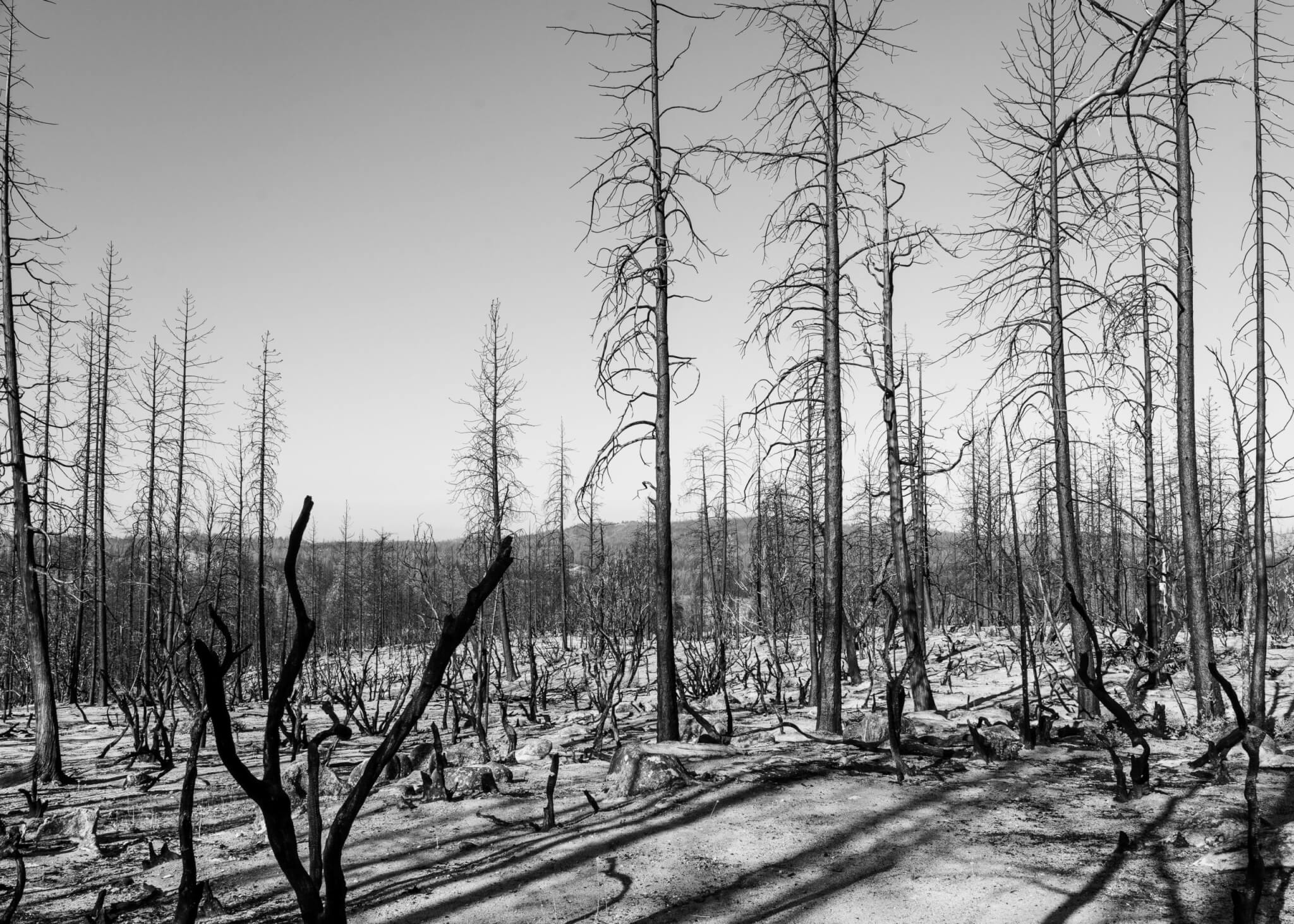
That's where I spent the first part of my childhood. We moved to a house at the very edge of the Henry Cowell State Park. At the end of my street for my whole childhood was Henry Cowell. For me, that version of forest remains the archetypal idea of what a forest is supposed to look like. Most of the world's forests don't look anything like those forests. I'm underwhelmed by most other forests. Not tall enough, they're not dense enough. They're not green enough. There are not enough banana slugs.
When you grow up somewhere, you use that as the baseline. When you grow up someplace as remarkable as Santa Cruz, you don't realize it's remarkable when you're 12. The redwoods are a spiritual home, as well as literally my home.
“I've addressed a wide range of topics in my work, but I've spent the most time thinking about our relationship to forests, landscape, and the natural world.”
The many, many hours that I've spent by myself in the redwood forest were formative in developing the skill to listen in a careful and sustained way over long periods of time.
Most of my creative time is spent in silence, listening and waiting. The ability to sustain that focus and to find silence and stillness as a fertile place for ideas comes directly from my experience growing up with access to the outdoors and to remarkable outdoors at that.
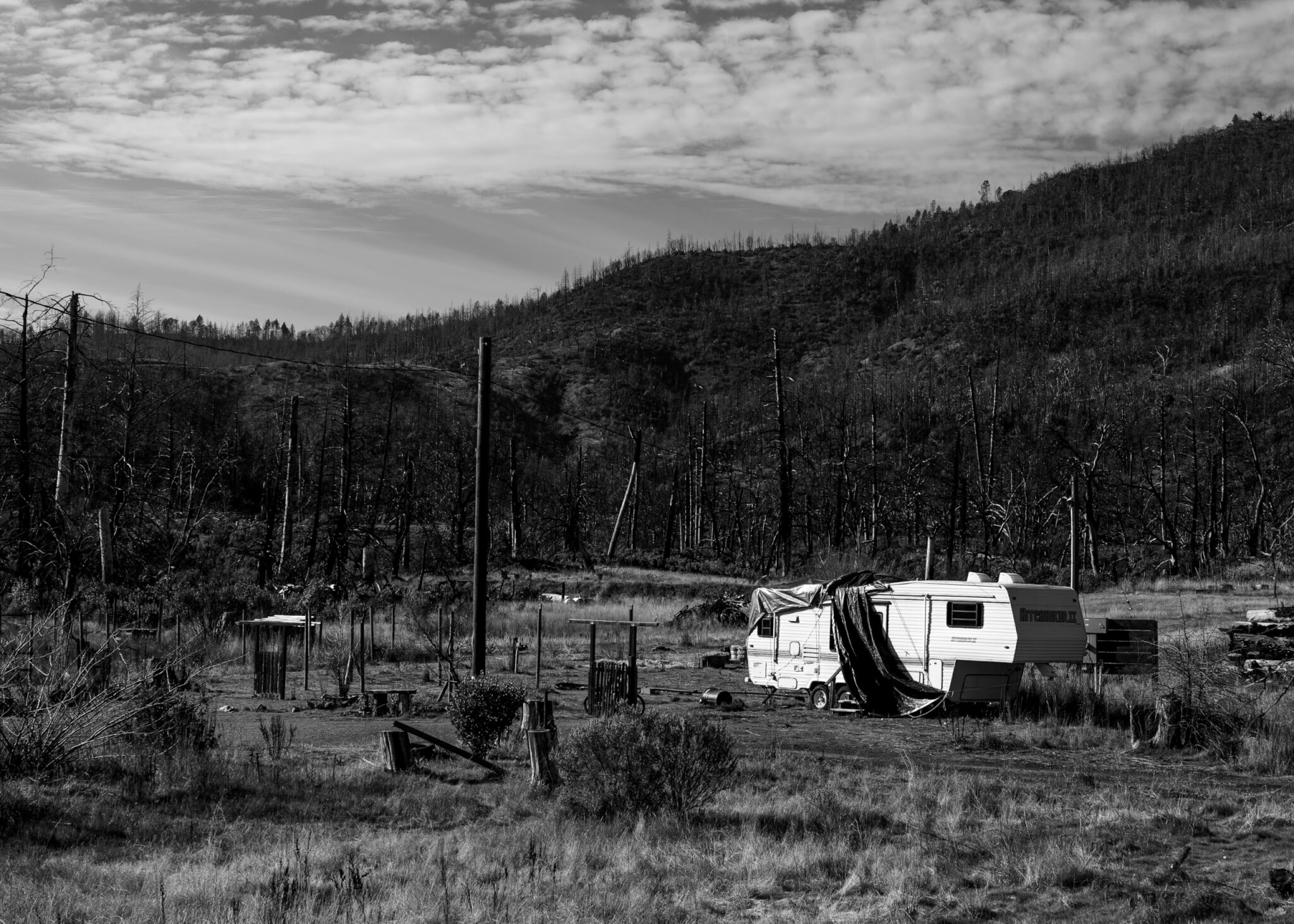
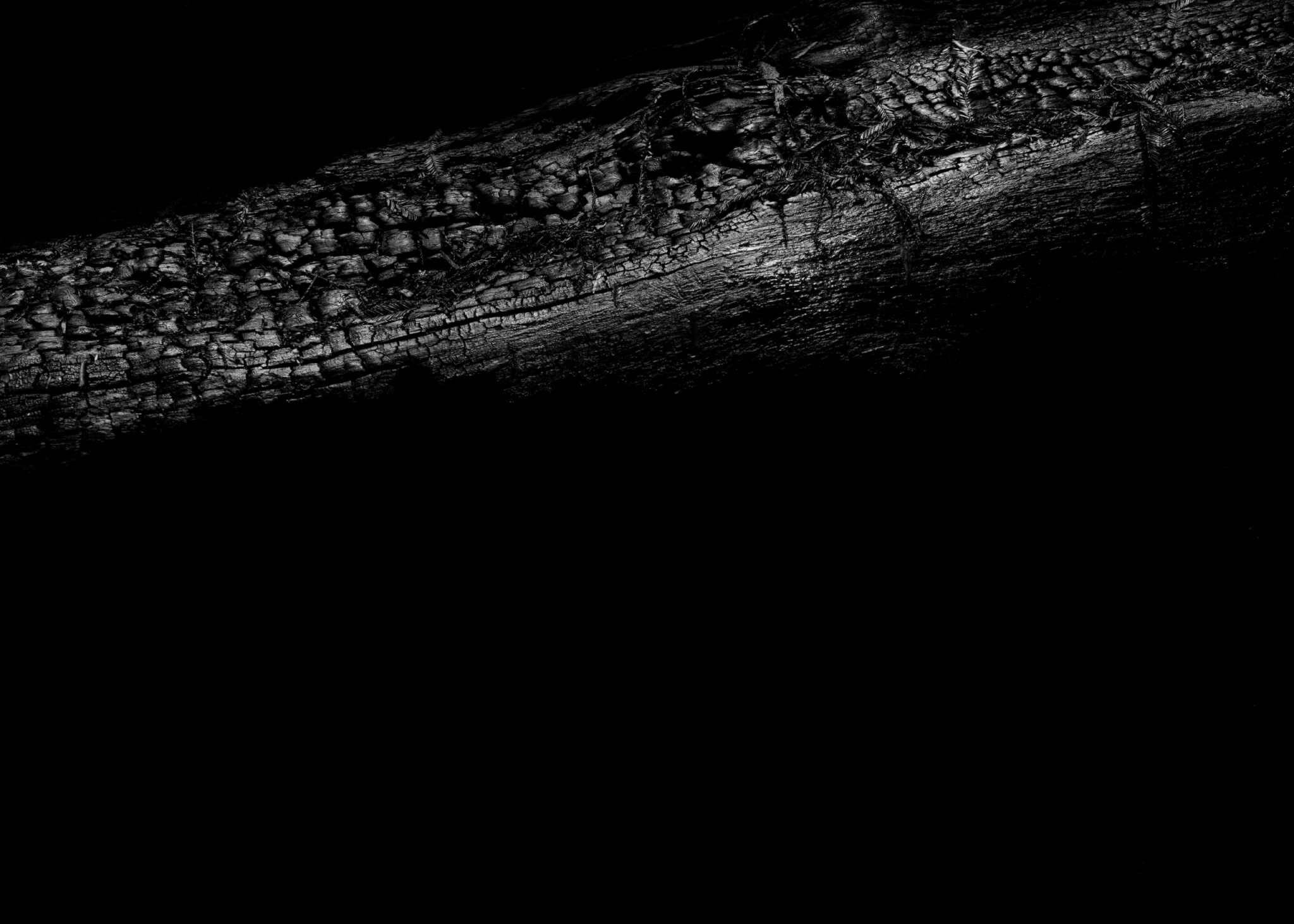
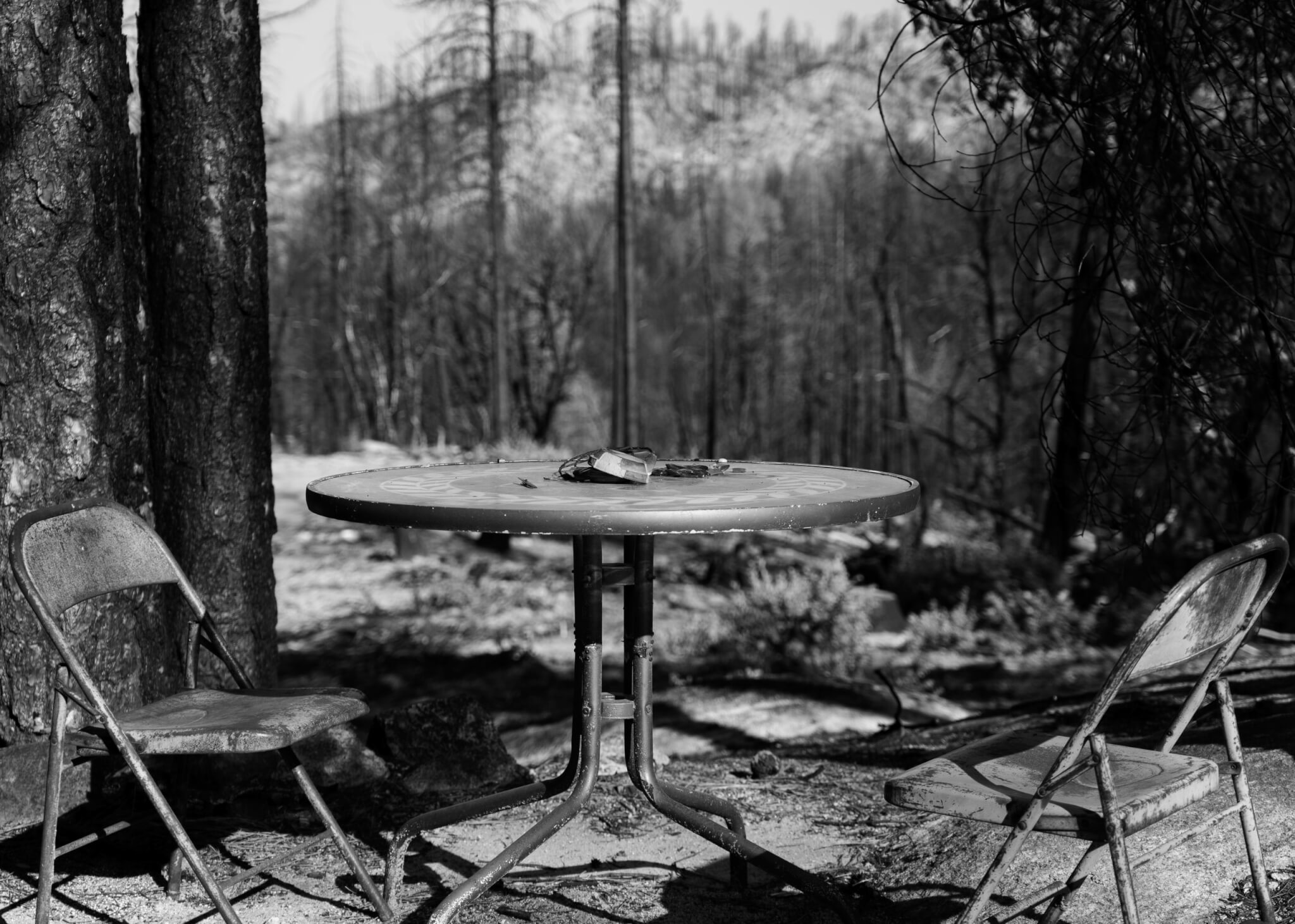
It was very painful at first to return to landscapes that I knew well, and landmarks that I knew well and find them either completely gone, blackened, or in some other way damaged. But as the project went on, and as I talked to more and more people, and as I visited at different times of the year over the course of about 18 months, my own emotional relationship to fire evolved as I came to understand better the extent to which fire is a natural and healthy part of the forest ecosystem.
It's a neutral phenomenon from a natural standpoint, it's not good, it's not bad, it's just a thing that happens in forests. Seeing the wildflower growth this season after a fire was a remarkable experience that I'd never witnessed before.
I came to realize the real complexity rests in the relationship between humans and the landscape.
The questions are how people are relating to it and how we're planning developments and how we're planning stewardship of the forests. And how we are acknowledging the fact that fire is part of a healthy forest ecosystem.
It's a different picture than I thought originally, which was purely kind of an emotional reaction to what's initially very shocking.
"It's a pivotal moment for humanity as we reach a point of no return with respect to the human cost of climate change."
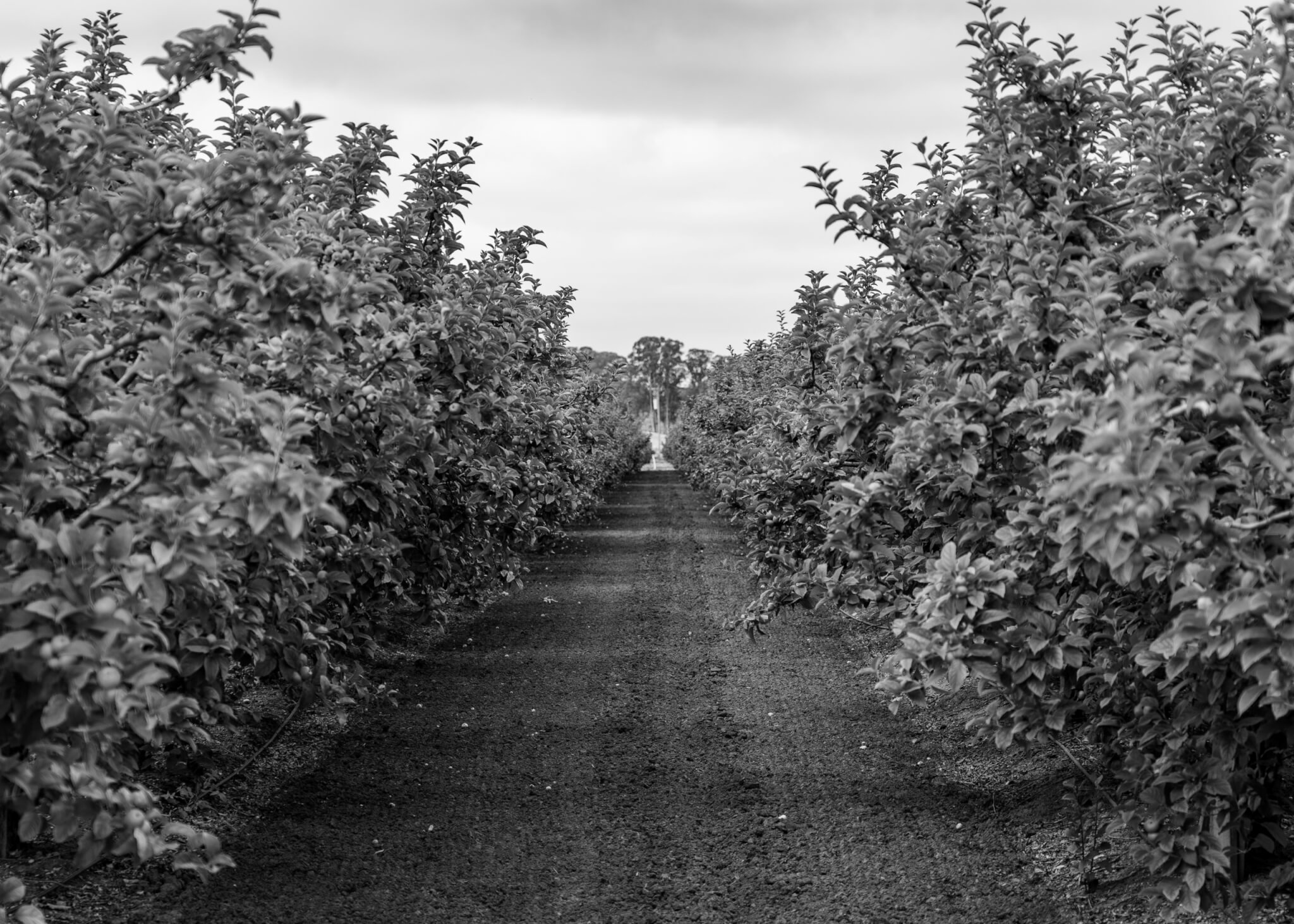
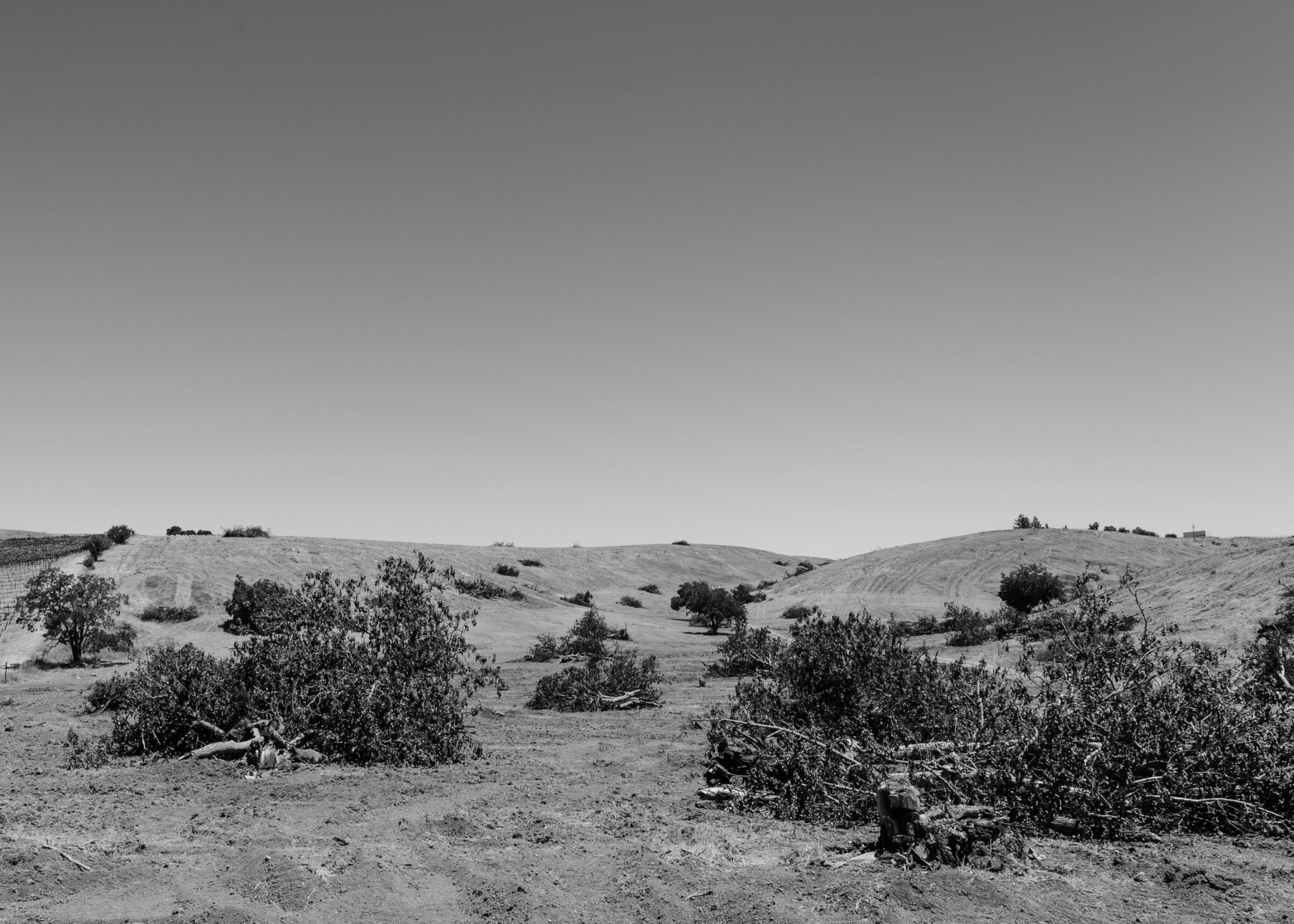
It's my belief that where art can intervene in a way which is potent and useful is by creating a different emotional relationship to a topic. I don't delude myself that my work will somehow "raise awareness of climate change." It would be preposterous to think that my work will "raise awareness of wildfire" for anyone in the Santa Cruz County area who has been living through wildfire.
I feel that art has the possibility to create and or strengthen emotional relationships to topics. People are moved to take action when they develop an irrational love for something.
Alarm bells have been sounded in every conceivable way around the need to protect and care for the natural world, both at the local and at the sort of policy level, but people don't take action themselves personally, until they have either a direct stake in things, or the kind of irrational love for something. Part of what art, and specifically music, can do is to create those irrational bonds of love that make people begin to take ownership of and have a stake in a topic or an idea. When you show somebody how beautiful something can be, that beauty has the power to persuade and to deepen connections.
"I want to create emotional and aesthetic connections which then become the basis for action.”
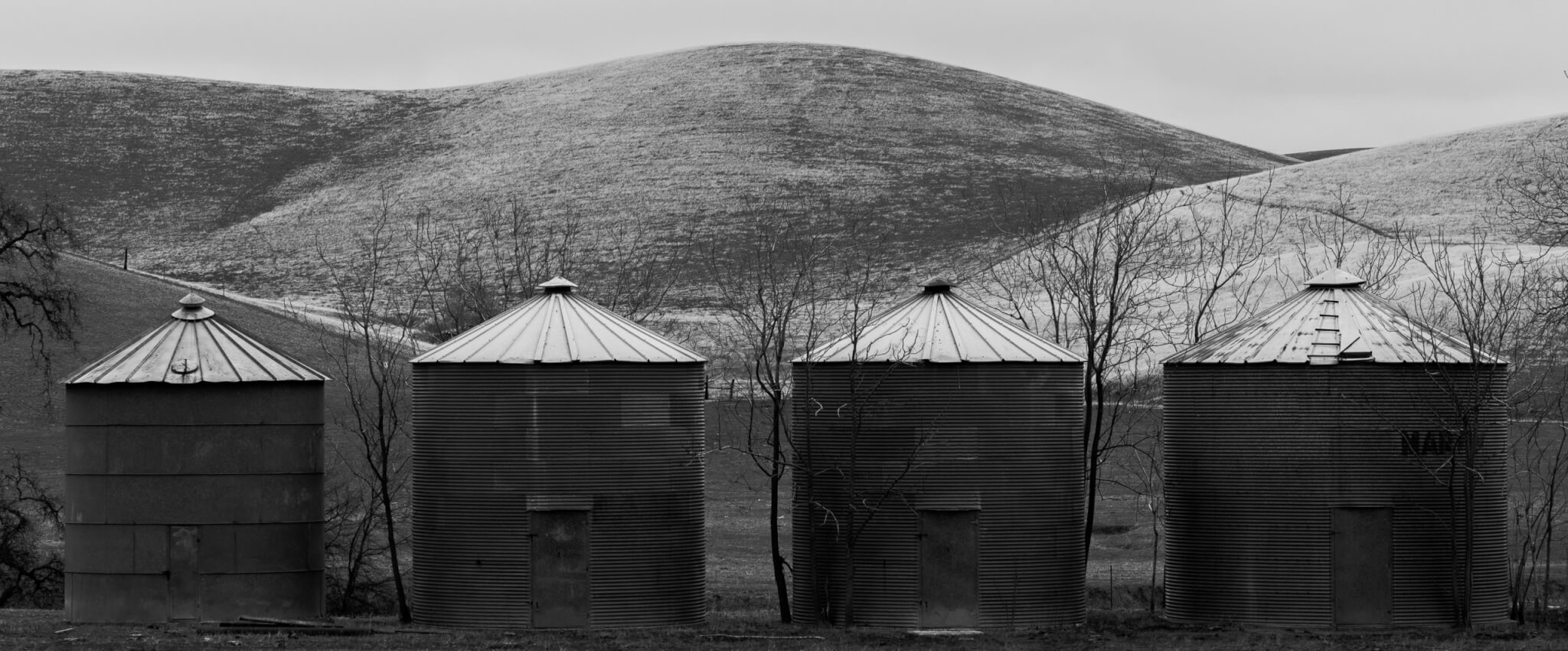
There's a finite list of things that most people will genuinely inconvenience themselves on behalf of.

“It's my hope that more people can develop an irrational love for the natural world—something they love no matter what. Not for a calculated reason. Just the kind of gut level, emotional love that they would do crazy things for.”
—Scott Ordway, composer and multimedia artist, 2022

Experience The End of Rain
While The End of Rain premiered at the Cabrillo Festival of Contemporary Music on July 29, 2022 in Santa Cruz, California, you can experience "The End of Rain" through Scott Ordway's limited edition book with the complete crowdsourced texts of the work together with 97 photographs documenting the shared impact of fire and drought on California landscapes and communities.
More to Explore
- Watch The End of Rain: Art, Emotion, and Land with Scott Ordway
- Read more about protecting land and connecting youth with nature at Camp Jones Gulch
- Learn more about how you can protect Redwoods, Now, For All, Forever
